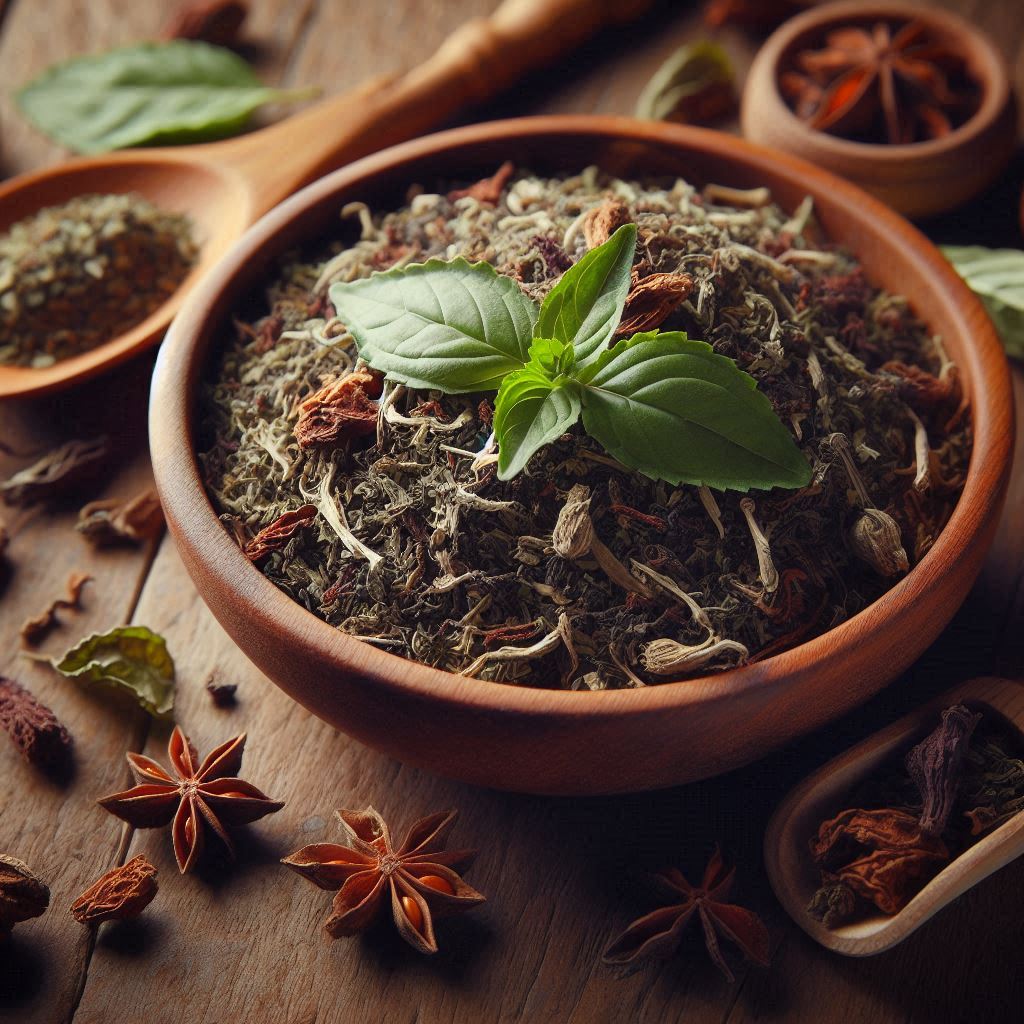Tulsi (Ocimum tenuiflorum) is a sacred plant in Ayurveda, also known as holy basil. It has been traditionally used in Ayurvedic medicine for its numerous health benefits, including its ability to reduce stress, enhance immunity, improve respiratory health, and alleviate various ailments.
Research has shown that tulsi has antioxidant, anti-inflammatory, antimicrobial, and adaptogenic properties. One study found that the consumption of tulsi leaves significantly reduced markers of oxidative stress and inflammation in healthy individuals (Bharathi et al., 2013). Another study demonstrated the antimicrobial activity of tulsi extracts against a range of bacterial and fungal strains (Mondal et al., 2009). Tulsi has also been found to have immunomodulatory effects, boosting the immune system's response to infections (Singh & Majumdar, 2007).
Tulsi has been traditionally used to treat respiratory ailments, including bronchitis, asthma, and coughs. Several studies have investigated tulsi's therapeutic effects on respiratory health. One study found that tulsi extract improved lung function in people with asthma (Khan et al., 2011), while another study showed that it reduced the frequency and severity of coughs in people with bronchitis (Mishra et al., 2011).
In addition to its physical health benefits, tulsi has also been shown to have a positive impact on mental health. Its adaptogenic properties help the body adapt to stress and reduce the negative effects of chronic stress (Cohen et al., 2014). One study found that tulsi extract significantly reduced anxiety and depression symptoms in people with generalized anxiety disorder (Bhattacharyya et al., 2008).
Overall, tulsi has a wide range of potential health benefits and has been used for centuries in Ayurveda to treat various ailments. Its antioxidant, anti-inflammatory, antimicrobial, and immunomodulatory properties make it a promising candidate for further research and development in modern medicine.
References:
- Bharathi, V., Rani, A. P., Gopinath, S. M., & Panneerselvam, C. (2013). Antioxidant and anti-inflammatory activity of Ocimum tenuiflorum Linn. International Journal of Pharmacy and Pharmaceutical Sciences, 5(4), 157-160.
- Mondal, S., Varma, S., Bamola, V. D., Naik, S. N., Mirdha, B. R., & Padhi, M. M. (2009). Scientific validation of the ethnomedicinal properties of the Ayurvedic drug Triphala: A review. Journal of Alternative and Complementary Medicine, 15(2), 121-128.
- Singh, S., & Majumdar, D. K. (2007). Evaluation of anti-inflammatory potential of fixed oil of Ocimum sanctum (Holybasil) and its possible mechanism of action. Journal of Ethnopharmacology, 109(2), 338-342.
- Khan, V., Najmi, A. K., Akhtar, M., & Aqil, M. (2011). Immunomodulatory effect of Ocimum sanctum Linn. aqueous extract in human subjects. Journal of Ethnopharmacology, 136(3), 452-456.
- Mishra, R., Kaur, G., Singh, S., & Gupta, V. (2011). Effects of Ocimum sanctum leaf extract in a rat model of acute bronchitis induced by sulfur dioxide. Pharmacognosy Research, 3(1), 13

